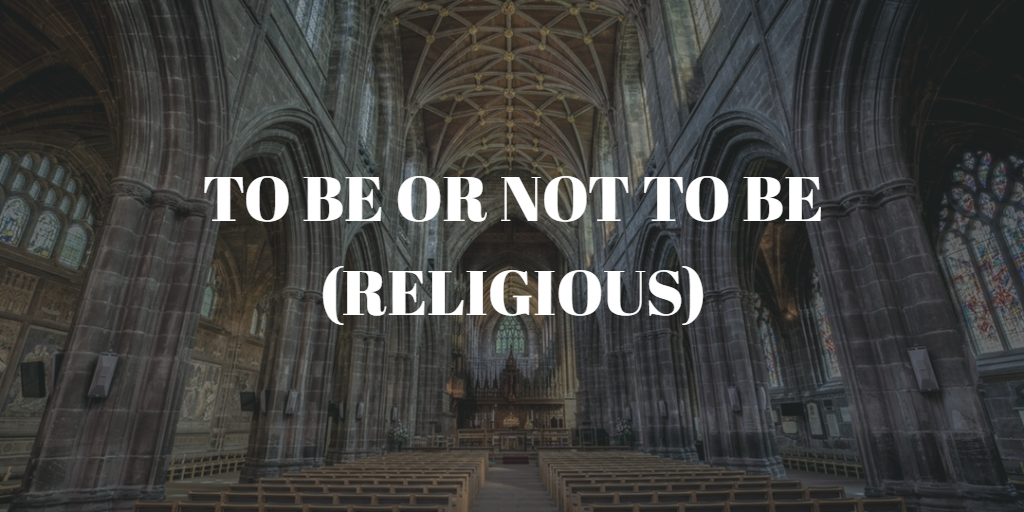ABROMEIT, Hans-Jürgen. Das Geheimnis Christi: Dietrich Bonhoeffers erfahrungsbezogene Christologie. Neukirchener Beiträge zur systemaschen Theologie 8. Neukirchen-Vluyn: Neukirchener Verlag, 1991. BEINTKER, Michael. “Kontingenz und Gegenständlichkeit: Zu Bonhoeffers Barth-Kritik in ‘Akt und Sein.’” In Krisis und Gnade: Gesammelte Studien zu Karl Barth, edited by Stefan Holtmann and Peter Zocher, 29–54. Tübingen: Mohr Siebeck, 2013. BENKTSON, Benkt-Erik. Christus Und Die Religion: Der Religionsbegriff Bei Barth, Bonhoeffer Und Tillich. Arbeiten Zur Theologie, II/9. Stuttgart: Calwer, 1967. BETHGE, Eberhard. Dietrich Bonhoeffer: A Biography. Edited by Victoria J. Barnett. Revised. Minneapolis: Fortress, 1967. BOOMGAARDEN, Jürgen. Das Verständnis der Wirklichkeit: Dietrich Bonhoeffers systematische Theologie und ihr philosophischer Hintergrund in “Akt und Sein.” Gütersloh: Chr. Kaiser/Gütersloher Verlagshaus, 1999. BURTNESS, James H. “As Though God Were Not Given: Barth, Bonhoeffer, and the Finitum Capax Infiniti.” Dialog 19, no. 4 (1980): 249–55. DEJONGE, Michael P. Bonhoeffer’s Theological Formation: Berlin, Barth, and Protestant Theology. Oxford: Oxford University Press, 2012. EICHINGER, Franz. “Zwischen Transzendentalphilosophie und Ontologie: Zur kritisch-systematischen Standortbestimmung der Theologie beim frühen Bonhoeffer.” In Vernunftfähiger – vernunftbedürftiger Glaube: Festschrift zum 60. Geburtstag von Johann Reikerstorfer-, edited by Kurt Appel, Wolfgang Treitler, and Peter Zeillinger, 65–86. Religion – Kultur – Recht 3. Frankfurt am Main: Peter Lang, 2005. FEIL, Ernst. The Theology of Dietrich Bonhoeffer. Translated by Martin Rumscheidt. Minneapolis: Fortress, 2007. GODSEY, John D. “Barth and Bonhoeffer: The Basic Difference.” Quarterly Review 7, no. 1 (1987): 9–27. ———. The Theology of Dietrich Bonhoeffer. Philadelphia, PA: Westminster, 1960. GREEN, Clifford J. Bonhoeffer: A Theology of Sociality. Revised. Grand Rapids: Eerdmans, 1999. ———. “Trinity and Christology in Bonhoeffer and Barth.” Union Seminary Quarterly Review 60, no. 1–2 (2006): 1–22. GREGGS, Tom. Theology Against Religion: Constructive Dialogues with Bonhoeffer and Barth. London; New York: T&T Clark, 2011. ———. “The Influence of Dietrich Bonhoeffer on Karl Barth.” In Engaging Bonhoeffer: The Impact and Influence and Impact of Bonhoeffer’s Life and Thought, edited by Matthew Kirkpatrick. Minneapolis: Fortress, 2016. KAMPHUIS, Barend. Boven En Beneden: Het Uitgangspunt van de Christologie En de Problematiek van de Openbaring Nagegaan Aan de Hand van de Ontwikkelingen Bij Karl Barth, Dietrich Bonhoeffer En Wolfhart Pannenberg. Kampen: Kok, 1999. KARTTUNEN, Tomi. Die Polyphonie Der Wirklichkeit: Erkenntnistheorie Und Ontologie in Der Theologie Dietrich Bonhoeffers. University of Joensuu Publications in Theology 11. Joensuu: University of Joensuu, 2004. KRÖTKE, Wolf. Barmen – Barth – Bonhoeffer: Beiträge Zu Einer Zeitgemäßen Christozentrischen Theologie. Unio Und Confessio 26. Bielefeld: Luther-Verlag, 2009. LEHMANN, Paul L. “The Concreteness of Theology: Reflections on the Conversation between Barth and Bonhoeffer.” In Footnotes to a Theology: The Karl Barth Colloquium of 1972, edited by Martin Rumscheidt, 53–76. Canada: Wilfrid Laurier University Press, 1974. MARSH, Charles. Reclaiming Dietrich Bonhoeffer: The Promise of His Theology. New York: Oxford University Press, 1994. MAYER, Rainer. Christuswirklichkeit: Grundlagen, Entwicklungen Und Konsequenzen Der Theologie Dietrich Bonhoeffers. Arbeiten Zur Theologie, II/15. Stuttgart: Calwer, 1969. PANGRITZ, Andreas. “Dietrich Bonhoeffer: ‘Within, Not Outside, the Barthian Movement.’” In Bonhoeffer’s Intellectual Formation: Theology and Philosophy in His Thought, edited by Peter Frick, 29:245–82. Religion in Philosophy and Theology. Tübingen: Mohr Siebeck, 2008. ———. Karl Barth in the Theology of Dietrich Bonhoeffer. Grand Rapids: Eerdmans, 2000. PUFFER, Matthew. “Dietrich Bonhoeffer in the Theology of Karl Barth.” In Karl Barth in Conversation, edited by W. Travis McMaken and David W. Congdon, 46–62. Eugene, OR: Pickwick, 2014. REUTER, Hans-Richard. “Editor’s Afterword to the German Edition.” In Act and Being: Transcendental Philosophy and Ontology in Systematic Theology, 162–83. DBWE 2. Minneapolis: Fortress, 1996. SHERMAN, Franklin. “Act and Being.” In The Place of Bonhoeffer: Problems and Possibilities in His Thought, edited by Martin E. Marty, 83–111. New York: Association Press, 1962. TIETZ-STEIDING, Christiane. Bonhoeffers Kritik Der Verkrümmten Vernunft: Eine Erkenntnistheoretische Untersuchung. Beiträge Zur Historischen Theologie 12. Tübingen: Mohr Siebeck, 1999. WITVLIET, J. Theo. “Bonhoeffer’s Dialoog Met Karl Barth.” Kerk En Theologie 16 (1965): 301–21. WOELFEL, James W. Bonhoeffer’s Theology: Classical and Revolutionary. Nashville: Abingdon, 1970. WÜSTENBERG, Ralf K. “Philosophical Influences on Bonhoeffer’s ‘Religionless Christianity.’” In Bonhoeffer and Continental Thought: Cruciform Philosophy, edited by Brian Gregor and Jens Zimmermann, 137–55. Indiana Series in the Philosophy of Religion. Bloomington, IN: Indiana Univ Press, 2009.


